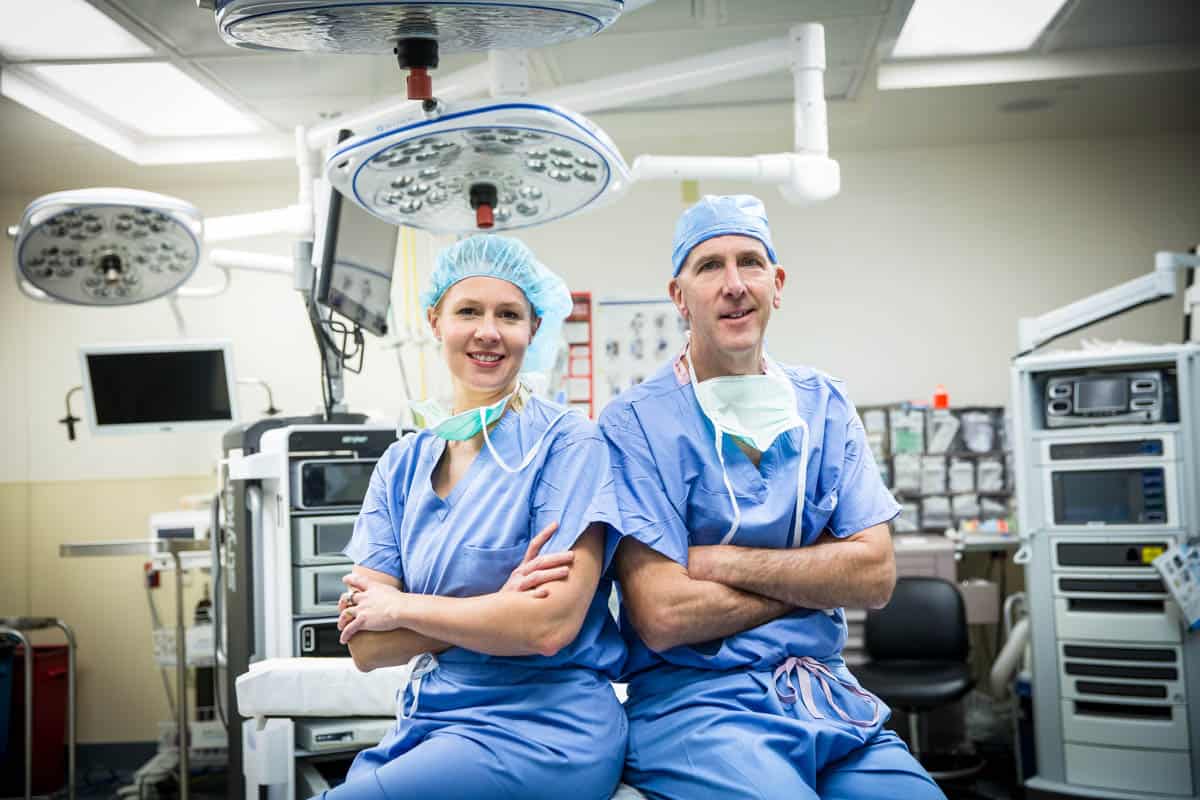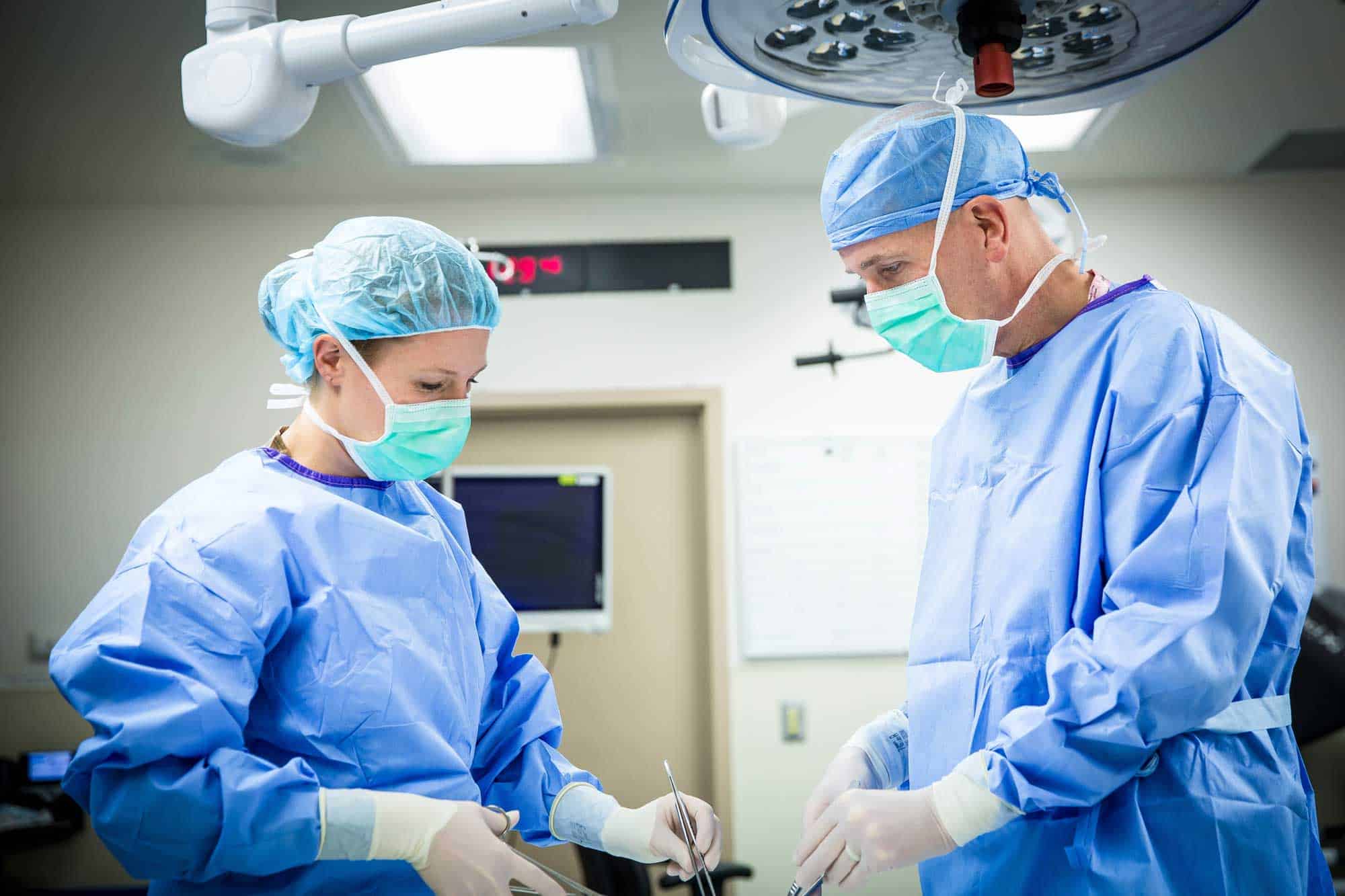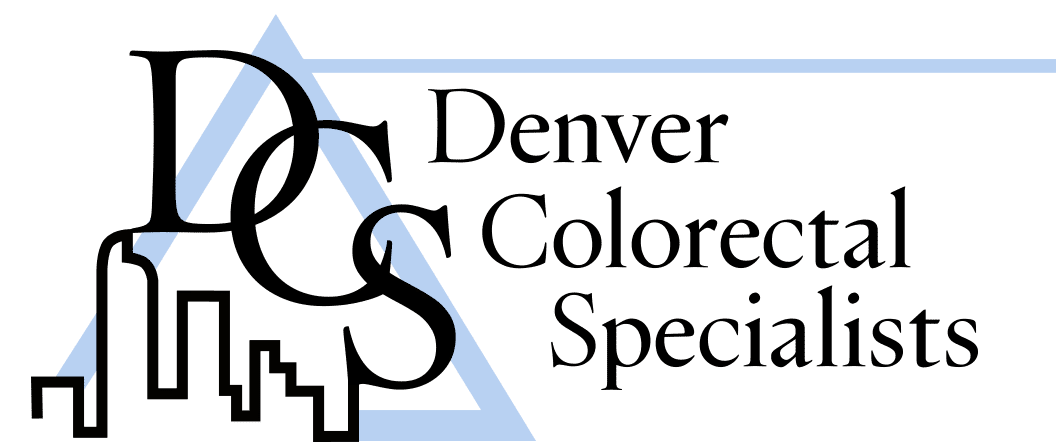Colonoscopy

What is a colonoscopy?
A colonoscopy is a medical procedure that looks at the inside of the large bowel, also called the colon. It is performed in an outpatient surgery center or in a hospital. It is able to detect many different types of abnormalities within the large bowel such as polyps, cancers, areas of narrowing, sources of bleeding, diverticulosis, inflammatory bowel disease and hemorrhoids. For the procedure, you are first sedated. Then a small narrow tube with a camera, the colonoscope, is place through the anus and up into the colon to look for any abnormalities. We are able to biopsy through the colonoscope if we see anything unusual.
How long does a colonoscopy take?
The procedure itself lasts only 20-30 minutes, but you will need to check in 60-90 minutes beforehand and will need to recover about 30 minutes after the procedure. So overall it lasts about 2-2 1/2 hours.
What Else Do I Need to Know?
When you schedule the colonoscopy, you will be given a prescription and directions on how and when to take a bowel preparation. Most people find this the most difficult part of the procedure. This is done at home the day/night before the colonoscopy. It is advised that you plan on staying home during this part, which can last several hours, as you will be going to the bathroom frequently. It is not painful, but can often cause some cramping and/or nausea.
Will I be awake for the procedure?
No. At the start of the procedure you will be given IV sedation and should not be awake or remember anything from the procedure itself. The type of sedation is called conscious sedation as you will still be breathing on your own. It is not a general anesthesia.
Is the procedure painful?
No. You will not be aware of anything during the procedure so you will not feel any discomfort. Afterwards, because air (actually CO2) is used to distend the colon during the procedure, you may have some cramping. Most of this is removed at the end of the colonoscopy, so any cramping you have usually resolves fairly quickly.
When will I get my results?
The doctor will go over the findings of the procedure and answer any questions before you leave the colonoscopy center. If any biopsies are taken, this usually takes 5-7 days to get the results. The office or the doctor will call you once these are available.
When should I get a Colonoscopy?
There are many different guidelines available, but the general consensus is that someone at average risk and without symptoms, should start screening for colon cancer at the age of 45. If you have a family member with a history of colon cancer or polyps, or if you are adopted and don’t know your family history, then you should generally start at the age of 40. Please see the guidelines below from the American Cancer Society for more detailed information.
Colonoscopy Screening Guidelines
For your FIRST colonoscopy:
For Average Risk people: Start at the age of 45
Someone is considered average risk if they have NONE of the following:
A personal history of colorectal cancer or precancerous polyps
A family history of colorectal cancer or precancerous polyps
A personal history of inflammatory bowel disease (ulcerative colitis or Crohn’s disease)
A history of hereditary colorectal cancer syndrome, such as familial adenomatous polyposis syndrome (FAP) or Lynch syndrome (hereditary non-polyposis colon cancer – HNPCC)
For someone at High Risk, they should start screening at the age of 40 or 10 years before the age of a family member that was diagnosed (ie. If your father or mother had colorectal cancer at the age of 42, you should start screening at the age of 32).
Someone is considered high risk if they have one of the following:
A family history of colorectal cancer or precancerous polyps
A personal history of inflammatory bowel disease (ulcerative colitis or Crohn’s disease)
A family history of hereditary colorectal cancer syndrome, such as familial adenomatous polyposis syndrome (FAP) or Lynch syndrome (hereditary
non-polyposis colon cancer – HNPCC)
For a follow-up colonoscopy:
If you are at average risk and your first colonoscopy was normal, or only hyperplastic polyps were found: Repeat every 10 years
If you are at average risk and precancerous polyps were found, a repeat colonoscopy should generally be performed in 5 years depending on the type, size and number of polyps.
If you are at high risk, you will need a colonoscopy every 5 years if nothing is found. You may need it sooner if precancerous polyps were found, depending on the type, size and number of polyps.
Your doctor will let you know when you should come back based on the findings, and, if biopsies were taken, depending on the results of the biopsies.
If you have a concern about which risk group you are in, please contact us or check with your doctor. Not all conditions are listed in these guidelines.
Colonoscopy FAQs
I can't find my instructions, what should I do?
If it is during business hours, you can call our office and we will send you another copy. However, you can also access the information above on the resources.
Do I need a referral to schedule a colonoscopy?
If you are due for a screening colonoscopy you can call our office to schedule directly. If you are not sure, please may make an appointment with us to discuss options and timing
What bowel prep do you use?
Our default prep is SuTab, i.e. the pill form. However, your insurance company will only cover certain preps, therefore which insurance you have can determine which prep we prescribe you. If you have a preference, please let us know.
Are there options for which bowel prep I can use for my colonoscopy?
Yes there are many different bowel preps. Our default is SuTab because we find most prefer the pill form over the liquids. However, if you have a preference, please let us know and we are happy to change it for you.
My bowel prep is expensive at the pharmacy, are there other options?
If your bowel prep seems too expensive, sometimes we can give you a different prep or provide a coupon. Please call our office before you pick up your prep so we can help figure out a solution.
What medications do I have to hold before my procedure?
My prep hasn't worked yet, what should I do?
It is not uncommon for the prep to take up to 6 hours or more to work for some people. If this is the case for you, take your second dose of prep 1-2 hours earlier than your scheduled time to give it more time to work before your procedure.
I threw up my colonoscopy prep and I can’t take the second dose. What should I do?
For some people, they just can’t tolerate the prep, but don’t realize it until after they have started it. In that case, you can buy a Miralax 8.3 ounce container (it is over the counter; no prescription needed) and two 32oz bottles of gatorade. Mix half of the Miralax in each 32 ounce bottle of gatorade or similar liquid. Take the first bottle as soon as you can, and the second bottle at the regularly prescribed time. Try to consume each bottle within 30 min of starting.
How do I know if my colon is cleaned out?
After you are done with your prep, your bowel movements should be clear and slightly yellow tinged, like urine, and you should be able to see the bottom of the toilet bowl. It is sometimes a little darker or green which is ok. If your bowel movements still have any solid pieces, this is when we may not be able to fully evaluate the lining of the colon. Sometimes this requires a two-day bowel prep. Please call our office if you have any concerns your prep didn’t work.
Where do I go for my colonoscopy?
How do I schedule a colonoscopy?
If you have no symptoms (ie. no bleeding, pain, changes/thinning of the stool) and it is just a screening, you can call the office and schedule it over the phone. You do not need to come in to see the doctor first. However, some people feel more comfortable coming into the office to meet the doctor before a colonoscopy, and you are welcome to do so. Either way, please just click on the link or call the office to set up your appointment.

